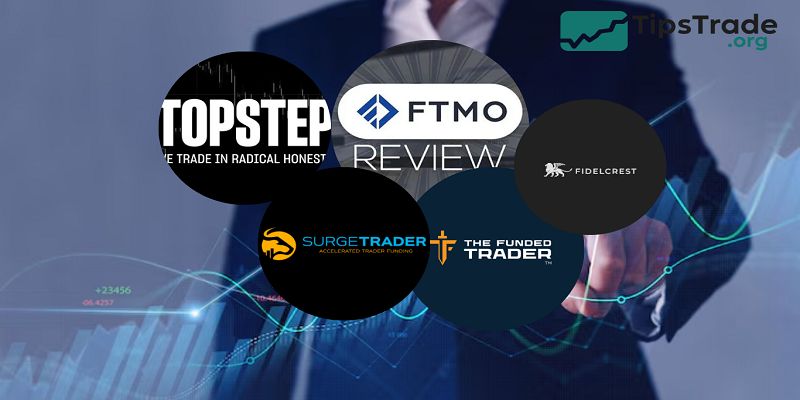“Top Prop Firms” has become one of the most popular search queries among traders who want to scale their accounts without risking personal capital. Proprietary trading firms, also called prop firms, provide traders with company capital in exchange for a share of profits. For many retail traders, this is the most realistic path to trading professionally. By joining a prop firm, a trader can focus on strategy, risk management, and psychology instead of worrying about funding their account. The article above from Tipstrade.org has just provided you . We hope that you find it useful. Wishing you successful trading!
What is a Prop Firm and Why Do Traders Use Them?
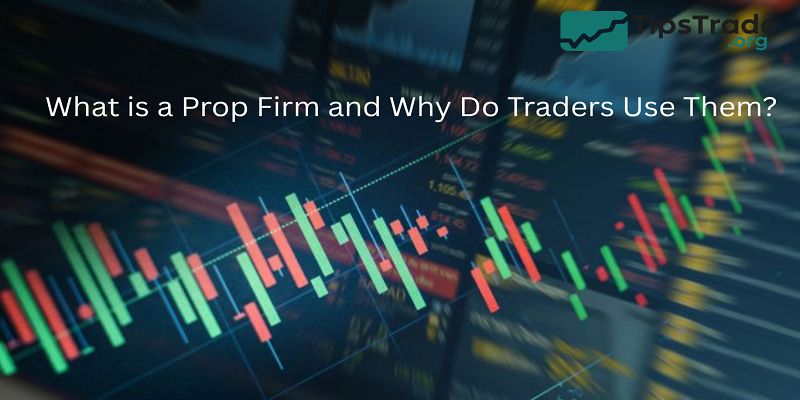
A proprietary trading firm (prop firm) is a company that allows qualified traders to trade with firm capital. Instead of risking their own funds, traders are given access to large accounts—sometimes up to $400,000 or more—after passing an evaluation process. Profits are shared between the trader and the firm, typically ranging from 70%–90% payouts.
Many retail traders turn to prop firms because:
- They lack the savings to trade full-time.
- Prop firms cover losses, reducing personal financial risk.
- Structured rules encourage discipline and professional growth.
- Scaling programs allow traders to grow accounts exponentially.
For example, FTMO popularized the two-step evaluation process, where traders prove their skills before accessing funded accounts. Other firms, like SurgeTrader, offer instant funding with higher fees but no evaluation. Each model has trade-offs, and knowing which one fits your trading style is crucial.
Criteria to Choose the Best Prop Firm

Profit Split (Payout Percentage)
- The profit split is one of the first things traders compare. Most top prop firms offer between 70% and 90% payouts, with some exceptions going up to 95%.
- A higher payout sounds attractive, but it only matters if the firm pays consistently and without delays.
- For example, FTMO offers 80–90%, while Fidelcrest provides up to 90% but with stricter rules. Traders should also consider withdrawal frequency—bi-weekly or monthly—as it impacts cash flow.
Fees and Challenge Costs
- Almost all prop firms charge an entry fee for evaluations.
- These fees can range from $100 for a small account to $1,000+ for larger accounts.
- The value for money depends on the rules. A $500 challenge with fair trading conditions can be better than a $200 challenge with unrealistic drawdown limits.
- Traders on forums like Forex Factory often warn against firms that lure clients with cheap fees but impose hidden restrictions.
Evaluation & Challenge Rules
- Some firms require a two-phase evaluation, others just one, and a few like SurgeTrader skip it altogether.
- Key factors include maximum drawdown, daily loss limits, and minimum trading days. According to a 2024 survey by Finance Magnates, the most common reason traders fail prop challenges is not hitting profit targets but violating risk limits.
- This highlights the importance of rules that align with your trading style.
Trading Platforms & Technology
- Top prop firms support popular platforms like MetaTrader 4 (MT4), MetaTrader 5 (MT5), and cTrader.
- Some also offer proprietary dashboards with performance analytics. Platform choice matters because execution speed, spreads, and slippage can significantly impact profitability.
- For example, futures traders prefer Topstep, which integrates with NinjaTrader.
Scaling Plans
- Scaling is a major benefit of prop trading. Firms often allow traders who perform consistently to double their accounts every few months.
- For example, FTMO’s scaling plan increases account size by 25% after four profitable months.
- Long-term traders should prioritize firms with transparent scaling models to maximize growth potential.
Reputation & Trust
- Trustworthiness is the hardest but most important factor.
- Traders should research reviews on Trustpilot, Reddit (r/Forex), and MyFXBook.
- A flashy payout promise is meaningless if the firm is known for account closures or payout refusals.
- The collapse of My Forex Funds (MFF) in 2023 taught traders that even large firms can fail.
- Choosing regulated or long-standing firms adds an extra layer of security.
Top Prop Firms in 2025
Below is a review of the top proprietary trading firms based on profit splits, rules, fees, and trader feedback.
FTMO Review
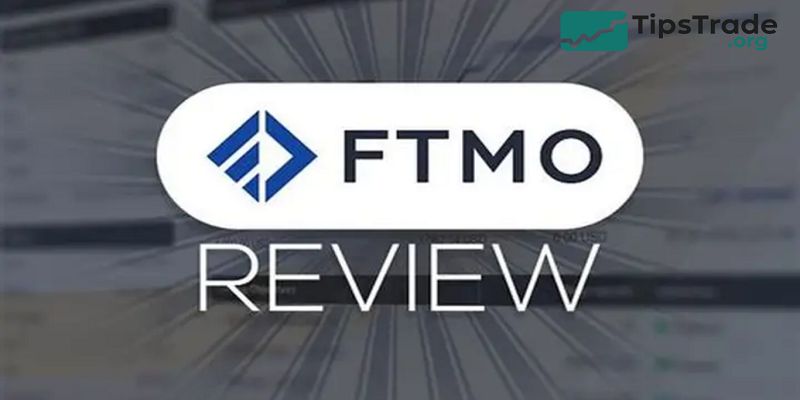
- FTMO, based in Prague, remains the industry leader in 2025. Known for its two-step evaluation, FTMO offers accounts up to $400,000 and payouts up to 90%.
- The firm has paid millions in profits to traders worldwide and provides excellent tools like the FTMO Performance App for trade analytics.
Pros:
- High reputation and transparency.
- Strong trader support and resources.
- Reliable payouts, usually within 24–48 hours.
Cons:
- Profit target can be challenging (10% in Phase 1).
- Strict daily loss rules.
The Funded Trader Program (TFTP)
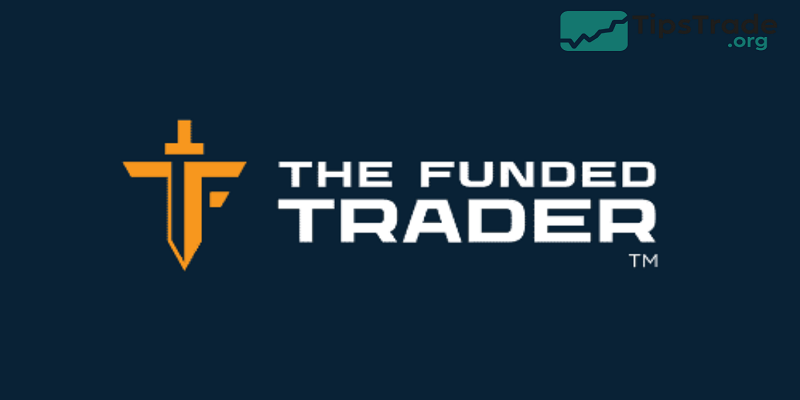
TFTP gained popularity with its gamified approach and multiple account types, including Knight, Royal, and Standard challenges. Traders can scale up to $600,000 with profit splits up to 90%.
Pros:
- Variety of programs to fit different risk styles.
- Frequent promotions and discounts.
- Fast scaling opportunities.
Cons:
- Customer support sometimes slow.
- Some traders complain about spreads during high volatility.
SurgeTrader
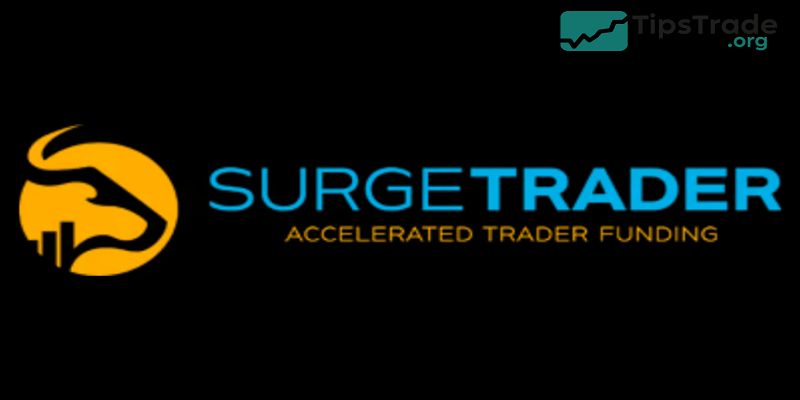
Unlike traditional firms, SurgeTrader offers instant funding with no evaluation phase. Traders can start with accounts up to $1 million but must pay higher upfront fees. Payouts are set at 75%.
Pros:
- No challenge, start trading immediately.
- Good for experienced traders who dislike time pressure.
Cons:
- Expensive entry fees.
- Lower payout compared to peers.
Fidelcrest
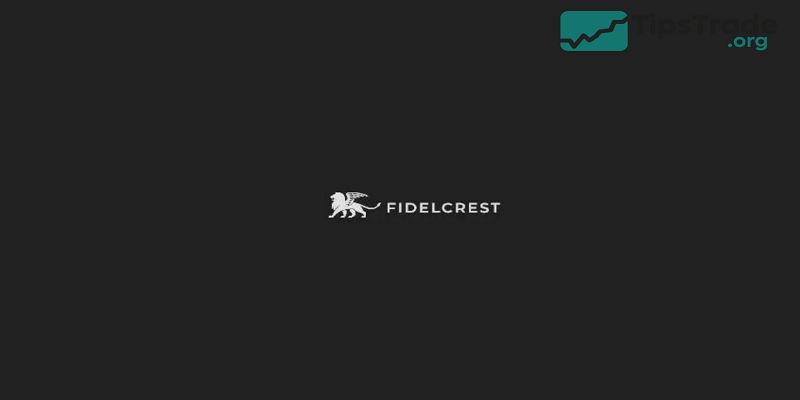
Fidelcrest markets itself as a global prop firm with multiple account sizes and profit splits up to 90%. They also allow both forex and stock CFD trading.
Pros:
- Wide range of account sizes.
- High payout ratio.
- Frequent trader contests and rewards.
Cons:
- Customer reviews are mixed regarding payout speed.
- Rules can feel restrictive for scalpers.
Topstep (For Futures Traders)
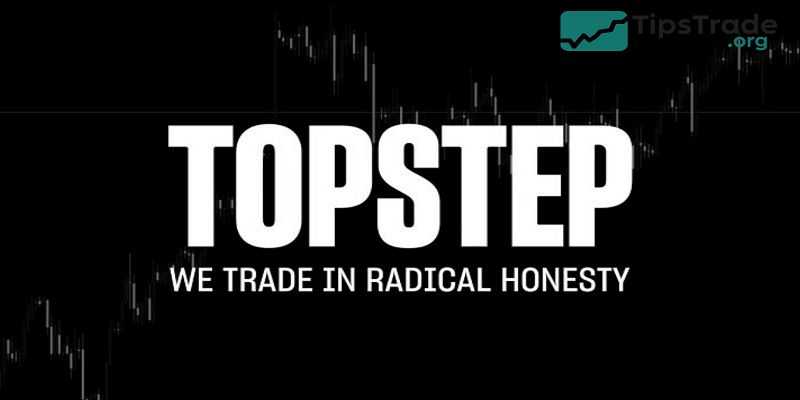
Topstep is unique because it focuses exclusively on futures markets, not forex. It has been around since 2012 and is widely trusted among professional traders.
Pros:
- Long track record, very reliable.
- Great for futures traders in the US.
- Strong educational support.
Cons:
- Not suitable for forex or CFD traders.
- Evaluation process is slower compared to newer firms.
Quick Comparison Table of Top Prop Firms
| Prop Firm | Max Funding | Payout % | Evaluation Model | Scaling Plan | Best For |
| FTMO | $400,000 | Up to 90% | 2-step challenge | +25% every 4 months | Balanced traders |
| The Funded Trader | $600,000 | Up to 90% | Multiple models | Aggressive scaling | High-risk traders |
| SurgeTrader | $1,000,000 | 75% | No evaluation | Fixed scaling | Experienced traders |
| Fidelcrest | $1,000,000 | Up to 90% | 2-step challenge | Flexible | Forex & CFD traders |
| Topstep | $150,000 | Up to 80% | Futures combine | Step growth | Futures traders |
Pros and Cons of Trading with Prop Firms
Advantages
- Access to large capital without risking personal savings.
- Structured trading environment that builds discipline.
- Educational support from firms like FTMO and Topstep.
- Scaling opportunities for long-term growth.
Disadvantages
- Evaluation pressure leads many traders to fail.
- Entry fees can be expensive, especially with multiple retries.
- Firm risks – regulatory shutdowns or liquidity problems.
- Rules & restrictions can limit some strategies (e.g., news trading or scalping).
Real experiences on forums show that traders who approach prop trading with a solid plan thrive, but those who treat it as a shortcut to riches often fail quickly.
Tips to Pass Prop Firm Challenges Successfully

- Risk Management First – Never risk more than 1–2% per trade.
- Focus on Consistency – Avoid chasing the profit target in a few trades.
- Trade During Active Sessions – London and New York overlaps provide the best liquidity.
- Use a Trading Journal – FTMO and Fidelcrest offer built-in analytics tools.
- Control Emotions – Most traders fail due to psychology, not strategy.
For example, a trader on Reddit’s r/Forex shared that he failed three challenges before passing one by reducing trade size and extending his challenge period. His success came not from a new strategy but from better discipline.
Conclusion
Prop firms offer a unique opportunity for traders to access significant capital, reduce personal risk, and build professional habits. The best choice depends on your trading style: FTMO for balanced traders, The Funded Trader for high-risk, high-reward styles, SurgeTrader for instant access, Fidelcrest for diverse assets, Topstep for futures specialists.

